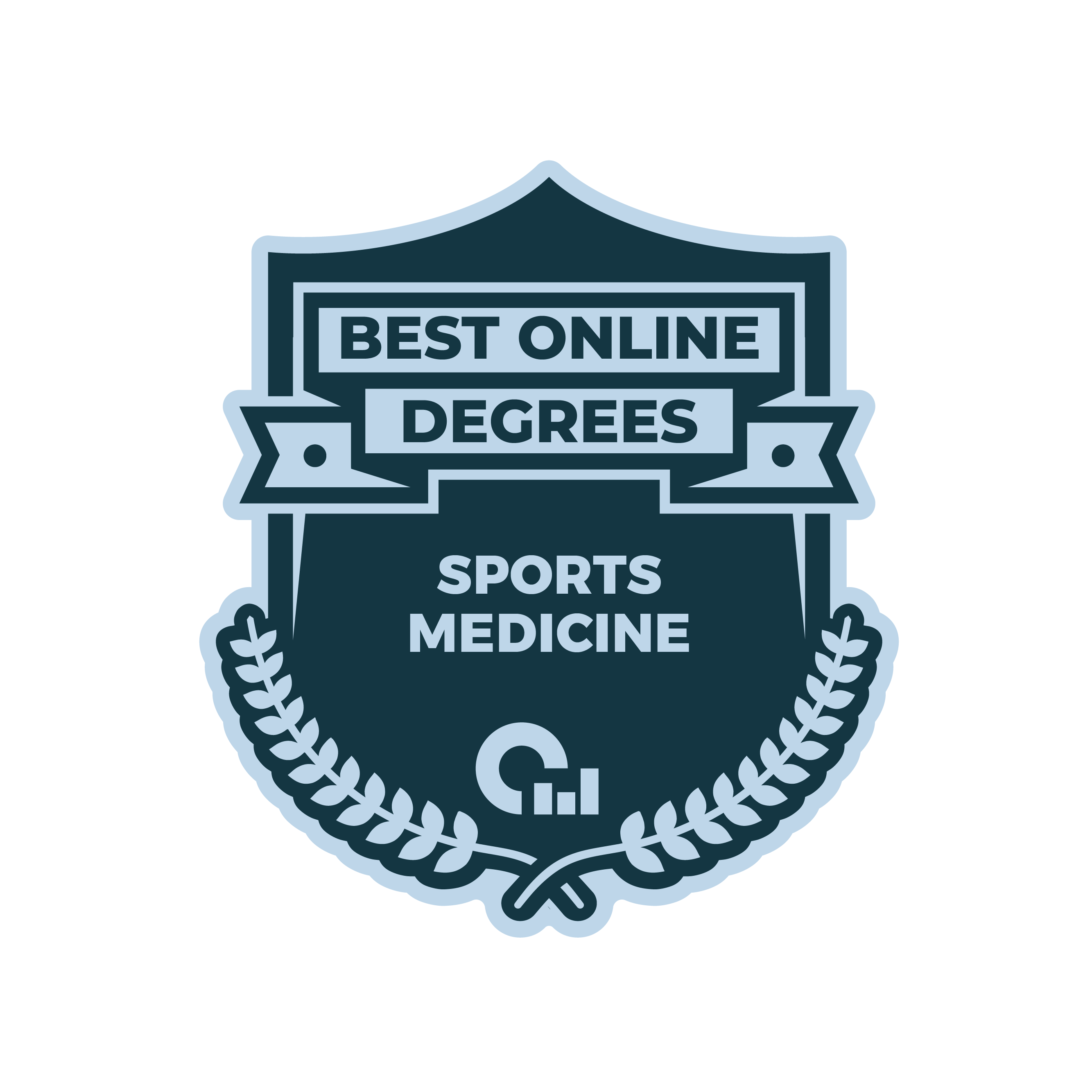
-
working closely with amateur athletes
-
building healthy training plans
-
working with professional athletes who are trying to keep healthy while reaching new heights in the athletic world
What is a Sports Medicine Degree?
- prevent muscle and bone injuries and illnesses
- diagnose muscle and bone injuries and illnesses
- treat muscle and bone injuries and illnesses
- increase physical performance
You’ll take coursework all about health, fitness, and human anatomy, among others.
-
a physical therapist
-
an occupational therapist
-
a sports medicine nurse
-
a sports psychologist
-
Exercise Physiology
-
Human Physiology
-
Human Movement
-
Basic First Aid
-
Occupational Therapy
-
Sport Nutrition
See Also: Ultimate Guide to Sports Medicine
How Much Can You Earn With a Sports Medicine Online Degree?
With a bachelor’s degree, athletic trainers make a median annual wage of just under $50,000, according to the Bureau of Labor Statistics. Exercise physiologists can make about the same amount annually. Of course, the more experience you have and the more advanced education you obtain, the higher your potential salary will be.
For example, as a recent college graduate with little or no experience in this field, you might make about $33,000 per year as an athletic trainer. But with a master’s degree and ten years of experience, you might earn well over $100,000 per year, depending on your place of employment.
Career length and the location in which you work are also huge factors when it comes to salaries in this field. Obviously, the more experience you have, the higher the salary you can command. But the place you work is also significant – an athletic trainer that works for a professional sports team is very likely to make much more money than an athletic trainer that works at a local gym
The outlook for jobs in this field is great. In fact, the demand for athletic trainers is projected to increase 23 percent by 2030. This demand is expected as people become increasingly aware of the effects of sports-related injuries, and as the middle-aged and older populations remain active.
What is Required for Admission to a Sports Medicine Program?
Requirements will vary depending upon the type of program to which you’re applying. For most undergraduate degrees, you won’t need to have any prior experience in the field. Instead, you’ll need a high school diploma or equivalent, official transcripts, and satisfactory ACT or SAT scores.
However, some programs might have prerequisite course requirements. For example, you might have to have taken anatomy, physiology, and biochemistry to be admitted to a sports medicine program. As another example, you might have to have a certain GPA – like 3.0 on a 4.0 scale – to be admitted to a sports medicine undergraduate program. These types of requirements vary from one school to the next, so just be sure to inquire about the acceptance requirements ahead of time.
See Also: How to Get Into Sports Medicine
What are the Best Sports Medicine Bachelor’s Degree Programs?
Sports medicine is a very popular field, and there are many online sports medicine programs. While having a wide selection of degrees is nice, it can be a little overwhelming trying to determine which online degrees are the best for your particular needs.
The school rankings below seek to make the process of choosing an online sports medicine program a little easier. We have ranked each program using the same seven criteria:
- The number of degree options available
- The median annual wages two years after graduation
- The school’s admissions rate
- The school’s graduation rate
- The median debt upon graduation
- Student satisfaction
- The type of accreditation the school holds (regional accreditation, which is preferred, or national accreditation).
Each of these factors offer you valuable information about sports medicine schools online. For example, we look at the median annual wages two years after graduation as a measure of the quality of graduates a program produces. Better-prepared graduates are more likely to get higher paying jobs.
As another example, for these school rankings we also look at student satisfaction. Though this measure is somewhat subjective, it is still indicative of the overall perceived quality of a college or university by students that attended that institution. You can get more details about the ranking criteria on our methodology page.
By giving you multiple points of measurement, you get a broad-based picture of what each program has to offer and how the quality of a program stacks up against the other programs in this ranking. This, in turn, will help you make a more informed decision about which online sports medicine program best fits your needs.
The sports medicine programs listed below are ranked in order of highest to lowest score. Check out our school rankings for a degree in sport medicine below.
Check out a sports medicine degree online with these education programs!
1. Online Bachelor of Science in Health Education

Quick Facts:
- Length: 120 credits
- Time to complete: 4 years (if attending full-time)
- Format: Online
- Tuition: $111.92 per credit (in-state); $500 per credit (out-of-state)
- Even though this is a degree in health education, this is not a teacher-preparation program. Instead, this program is designed to help graduates learn how to train others in healthy living practices.
Online Program Information:
- Number of Degree Options: 1
- Median Earnings Two Years After Graduation: $48,391
School-Wide Information:
- Admission Rate: 31%
- Graduation Rate: 87%
- Median Debt Upon Graduation: $18,149
- Student Satisfaction: 4.2 out of 5 stars
- Type of Accreditation: Regional (2 out of 2 points)
OSR Score: 88.33
The University of Florida’s online bachelor’s degree in health education focuses especially on health education principles for diverse populations. This means you will graduate with the understanding needed to teach groups of all sizes and backgrounds about how to live a healthier lifestyle.
Using these skills, you can venture into a number of different career paths. For example, graduates of this program can pursue careers as:
- Fitness counselors
- Youth educators
- Family life educators
- Health education specialists
- Drug rehabilitation specialists
The University of Florida gets high marks from graduates. Additionally, the University ranks among the best on this list in terms of median debt upon graduation and graduation rate.
Though there is just one degree option in this field, graduates enjoy decent incomes two years after graduation of around $48,000 per year. This is also the only health education degree on this list. If an education focus appeals to you, this might be a good option.
2. Online Bachelor of Science in Wellness Management
Quick Facts:
- Length: 120 credits
- Time to complete: 4 years (if attending full-time)
- Format: Online
- Tuition: $440
- Courses in this program have no set meeting times so you can study for your classes at your convenience.
Online Program Information:
- Number of Degree Options: 1
- Median Earnings Two Years After Graduation: $50,075.50
School-Wide Information:
- Admission Rate: 57%
- Graduation Rate: 86%
- Median Debt Upon Graduation: $23,375
- Student Satisfaction: 4.5 out of 5 stars
- Type of Accreditation: Regional (2 out of 2 points)
OSR Score: 85
The University of Wisconsin’s online bachelor of science in wellness management program includes 21 core courses that educate you in the science of health and wellness. Some of the core courses you will take include:
- Health and medical terminology
- Stress dependencies and addictions
- Leadership and change management in health
- Health coaching
- Health literacy
- Research and statistics
Incoming students either need to complete around 60 general education requirements. Alternatively, you can be admitted to the program if you have already completed an associate’s degree. Note that you might need to take prerequisite courses if they were not part of the associate’s degree curriculum.
While the University of Wisconsin is not one of the least expensive in our rankings, it does offer one of the highest graduation rates among schools on this list. Likewise, the University of Wisconsin has the highest student satisfaction score of any school in this ranking. Check out information about financial aid here.
3. Online Bachelor of Applied Science in Exercise Science

Quick Facts:
- Length: 120 credits
- Time to complete: 4 years (if attending full-time)
- Format: Online
- Tuition: $398
- This degree includes 33 credits of required coursework in exercise science and 18 hours of approved electives to go with 69 required general education credits.
Online Program Information:
- Number of Degree Options: 1
- Median Earnings Two Years After Graduation: $43,185.50
School-Wide Information:
- Admission Rate: 91%
- Graduation Rate: 63%
- Median Debt Upon Graduation: $21,000
- Student Satisfaction: 4.1 out of 5 stars
- Type of Accreditation: Regional (2 out of 2 points)
OSR Score: 75
The University of Kansas’ online bachelor of applied science degree in exercise science is designed to prepare you for work in fitness-related settings, such as sports medicine or therapeutic sport.
Additionally, this best online sports medicine degree has a strong scientific core of coursework that prepares you for advancing your education in the fields of strength and conditioning or cardiac rehabilitation. And since this program also fulfills the prerequisites for the physical therapy program at the University of Kansas Medical Center, a career as a physical therapist is an option.
Students in this program are also able to access the benefits of the National Strength and Conditioning Association (NSCA). This includes a wide range of scholarships and grants, assistantships and internships, and training opportunities as well.
The University of Kansas is near the top of our list in terms of student satisfaction (4.1 out of 5 stars) and median debt upon graduation ($21,000). It is middle-of-the-pack in terms of median earnings and graduation rate.
4. Online Bachelor of Science in Health Sciences
Quick Facts:
- Length: 120 credits
- Time to complete: 4 years (if attending full-time)
- Format: Online
- Tuition: $404.90 per credit
- This program is offered by the School of Health and Rehabilitation Sciences within Ohio State’s College of Medicine.
Online Program Information:
- Number of Degree Options: 1
- Median Earnings Two Years After Graduation: $49,019
School-Wide Information:
- Admission Rate: 68%
- Graduation Rate: 78%
- Median Debt Upon Graduation: $21,375
- Student Satisfaction: 4.2 out of 5 stars
- Type of Accreditation: Regional (2 out of 2 points)
OSR Score: 75
Ohio State’s online bachelor’s degree in health sciences is unique in that it’s offered by the College of Medicine. That means that the program is heavily focused on the science of health and wellness in order to prepare graduates for work in healthcare-related fields like sports medicine.
As part of this program, you’ll take a wide range of courses to prepare you for your career or your next educational goals. This includes coursework in:
- Health promotion
- Disease prevention
- Ethical decision-making in healthcare
- Individual differences in patient populations
Since this program is 100 percent online, there are no residency requirements. Furthermore, you can complete the program’s prerequisites at any institution of higher education and then finish the degree at Ohio State.
Ohio State University gets high marks from students and has a low median debt upon graduation. The University also has a high graduation rate.
5. Online Bachelor of Health Science in Health Science
Quick Facts:
- Length: 120 credits
- Time to complete: 4 years (if attending full-time)
- Format: Online
- Tuition: $321.30 per credit
- This is an interdisciplinary program with classes that touch on subjects ranging from local population health to healthcare policy to healthcare administration.
Online Program Information:
- Number of Degree Options: 1
- Median Earnings Two Years After Graduation: $44,149
School-Wide Information:
- Admission Rate: 82%
- Graduation Rate: 68%
- Median Debt Upon Graduation: $22,000
- Student Satisfaction: 4.1 out of 5 stars
- Type of Accreditation: Regional (2 out of 2 points)
OSR Score: 75
The online bachelor’s degree in health sciences from the University of Missouri-Columbia is a traditional 120-credit hour program that can be completed in about four years.
This program is completely online and can be completed from anywhere you have an internet connection.
Graduates of the University of Missouri enjoy higher-than-average incomes two years after graduation. Likewise, they enjoy lower-than-average federal student loan debt. Missouri students give their alma mater high marks for student satisfaction as well – Missouri’s 4.1 rating out of 5 stars is among the highest on this list.
To gain admission to the program, you must first successfully complete a variety of prerequisite courses. These courses cover topics related to diversity, physical science, behavioral science, statistics, biology, and writing and rhetoric.
Once in the program, you’ll complete 20-25 credits in health science, including courses on:
- Clinical ethics
- Leadership and management
- Health literacy
- Public health
There is also coursework on healthcare funding and healthcare policy.
6. Online Bachelor of Arts in Health and Human Services
Quick Facts:
- Length: 120 credits
- Time to complete: 4 years (if attending full-time)
- Format: Online
- Tuition: $510
- This degree can be tailored to your specific needs and goals by choosing among six different specializations.
Online Program Information:
- Number of Degree Options: 1
- Median Earnings Two Years After Graduation: $48,757
School-Wide Information:
- Admission Rate: 85%
- Graduation Rate: 63%
- Median Debt Upon Graduation: $17,915.50
- Student Satisfaction: 4.1 out of 5 stars
- Type of Accreditation: Regional (2 out of 2 points)
OSR Score: 75
The University of Arizona’s online degree in health and human services focuses on caring for patients’ physical, mental, and social needs. Taking this holistic approach helps you treat the whole person, not just their physical ailments or sports-related injuries.
Some of the classes you will take include:
- Introduction to health care
- Community and public health
- Special populations
- Research methods in health and human services
There is also a capstone requirement, which is a detailed research project on a specialized topic. Usually, students get to select their topic with the approval of their advisor.
This program is unique in that you take one course at a time. You’re enrolled in each course for about 5-6 weeks, so your studies are accelerated and you don’t have to worry about studying for multiple classes at the same time.
Graduates of the University of Arizona enjoy low debt upon graduation. In fact, at under $18,000, Arizona ranks near the top of schools in this ranking for lowest student debt. However, tuition for this program is more than $500, which is among the most expensive on this list.
7. Online Bachelor of Arts in Healthy Lifestyle Management
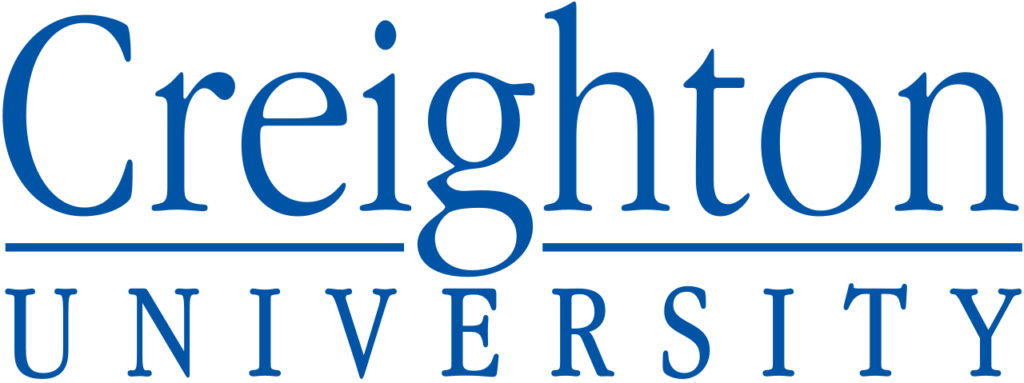
Quick Facts:
- Length: 120 credits
- Time to complete: 4 years (if attending full-time)
- Format: Online
- Tuition: $990 per credit
- This generalist program prepares you to pursue a variety of health-related professions and prepares you to pass a range of health and wellness coaching certification exams as well.
Online Program Information:
- Number of Degree Options: 1
- Median Earnings Two Years After Graduation: $42,223.50
School-Wide Information:
- Admission Rate: 64%
- Graduation Rate: 76%
- Median Debt Upon Graduation: $19,598.50
- Student Satisfaction: 3.8 out of 5 stars
- Type of Accreditation: Regional (2 out of 2 points)
OSR Score: 73.34
Creighton University’s online bachelor’s degree in healthy lifestyle management offers the flexibility you need to prepare for a number of different health-related positions.
Some of the topics you’ll study in this program include:
- How to provide effective coaching for health and wellness
- How to promote holistic wellness
- How to understand the physical, emotional, mental, and spiritual components of health and wellness
- How cultural and societal factors impact health and wellness
There are 40 credit hours within the major area that you can use to explore different health coursework. This coursework can prepare you to graduate with a bachelor’s degree and enter the workforce or prepare you to continue your education in a master’s degree program.
In fact, Creighton University offers a five-year program in which you obtain a bachelor of arts in healthy lifestyle management and a master of science in health and wellness coaching.
8. Online Bachelor of Science in Health Sciences

Quick Facts:
- Length: 120 credits
- Time to complete: 4 years (if attending full-time)
- Format: Online
- Tuition: $510 per credit
- This program includes multiple areas of specialization, including health and wellness, which could help you in your pursuit of a career in sports medicine.
Online Program Information:
- Number of Degree Options: 1
- Median Earnings Two Years After Graduation: $64,414
School-Wide Information:
- Admission Rate: 100% (this institution has an open admissions policy)
- Graduation Rate: 41%
- Median Debt Upon Graduation: $11,399.50
- Student Satisfaction: 4.3 out of 5 stars
- Type of Accreditation: Regional (2 out of 2 points)
OSR Score: 73.33
In this online degree in health sciences from Excelsior College, you not only get the content-related education in health issues but you also gain insight into how the U.S. healthcare system and insurance system works. Additionally, coursework from this private university includes an exploration of state health care policies and federal regulations that govern work in the healthcare field.
Importantly, you’ll also learn how to work with a wide range of clients. This emphasis on cultural competency will assist you in understanding the point of view of your patients regardless of their cultural background.
Some of the classes you can expect to take include:
- Research Methods
- Writing and Communicating in the Health Science Professions
- Healthcare Delivery Systems
- Healthcare Informatics
It should be noted that Excelsior College not only gets high marks from students but it also has the lowest median debt upon graduation of any program on this list. At just over $11,000, students complete this program with far less debt than the national average of $36,510.
9. Online Bachelor of Science in Health and Human Performance

Quick Facts:
- Length: 180 quarter credits (which is equivalent to 120 semester credits)
- Time to complete: 4 years (if attending full-time)
- Format: Online
- Tuition: $265
- This program gives you the option of pursuing a B.A. or a B.S. Additionally, there are four different areas of concentration to further specialize your studies.
Online Program Information:
- Number of Degree Options: 2
- Median Earnings Two Years After Graduation: $62,027.50
School-Wide Information:
- Admission Rate: 94%
- Graduation Rate: 42%
- Median Debt Upon Graduation: $22,000
- Student Satisfaction: 3.5 out of 5 stars
- Type of Accreditation: Regional (2 out of 2 points)
OSR Score: 71.67
This online degree from Eastern Oregon University focuses your studies on health and human performance. In addition to learning about various health topics, you’ll have the opportunity to study:
- the human body
- sports psychology
- movement
- sports science
This sports medicine program can be completed at a bachelor of arts or a bachelor of science. Furthermore, you can choose between four concentration areas:
- Physical education and sport
- Community health
- Exercise science
- Nature and outdoor recreation programming
In addition to the options outlined above, you can extend your learning through internships and capstone experiences. The purpose of these types of experiences is to extend your learning beyond the classroom. Internships give you the chance to work in a supervised setting while capstone experiences allow you to develop your research skills in the health and human performance space.
Eastern Oregon has a low debt upon graduation of $22,000. This university also boasts the second-highest income two years after graduation of the schools in this ranking.
10. Online Bachelor of Science in Kinesiology
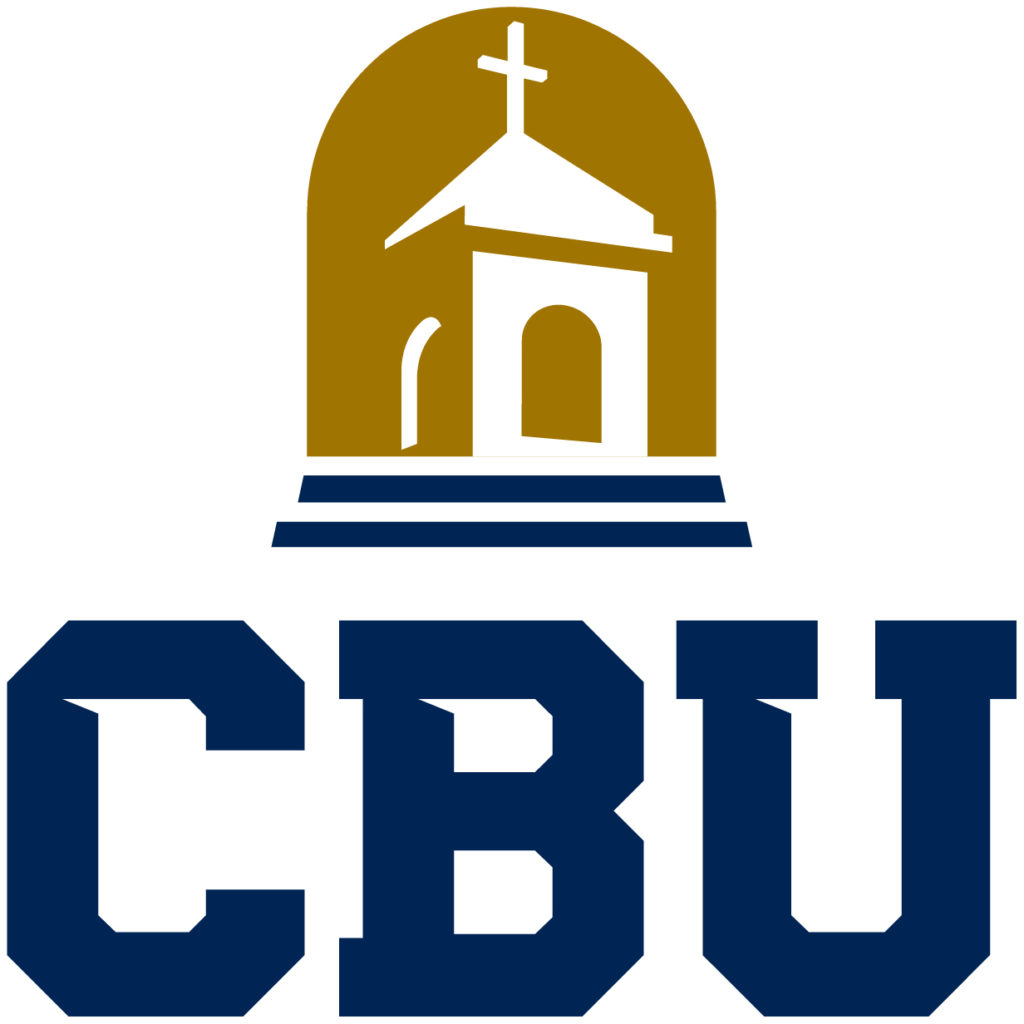
Quick Facts:
- Length: 50 credits (not including general education requirements)
- Time to complete: 18 months (if attending full-time)
- Format: Online
- Tuition: $613 per credit
- This is an all-purpose undergraduate degree that can help prepare you for a career in a number of areas, including coaching, athletic training, fitness, and other health-related fields.
Online Program Information:
- Number of Degree Options: 1
- Median Earnings Two Years After Graduation: $52,854.50
School-Wide Information:
- Admission Rate: 80%
- Graduation Rate: 62%
- Median Debt Upon Graduation: $30,057
- Student Satisfaction: 4.0 out of 5 stars
- Type of Accreditation: Regional (2 out of 2 points)
OSR Score: 71.66
The online bachelor of science program in kinesiology from California Baptist University gets high marks for its median earnings after graduation. At nearly $53,000, this program ranks above nearly all other programs on this list.
Unfortunately, students that graduate from California Baptist have, on average, over $30,000 in federal student loan debt. This is also among the highest on this list, though it is still below the national average.
With a focus on kinesiology, this program is a good foundation for a future career in many health-related fields, not the least of which is athletic training, fitness, or sports medicine.
During your tenure in the program from this private university, you’ll take courses related to anatomy, physiology, and motor development. You’ll also be trained in first aid, exercise physiology, and principles of conditioning athletes. This is, of course, in addition to general education requirements that include science, math, humanities, and so forth.
11. Online Bachelor of Arts in Exercise Science
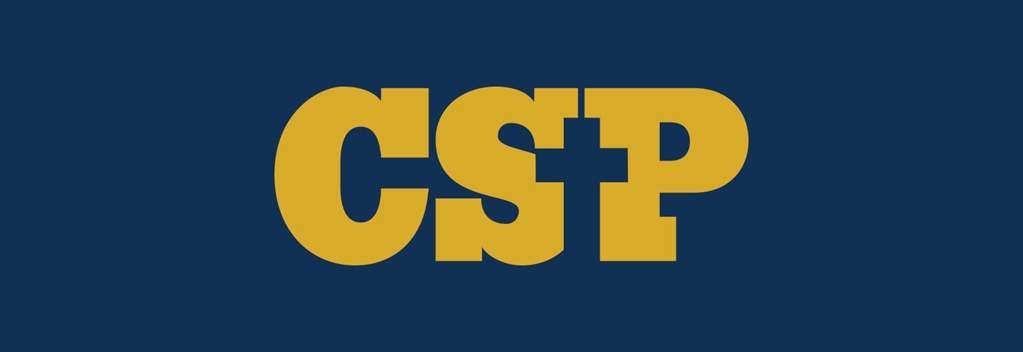
Quick Facts:
- Length: 120 credits
- Time to complete: 4 years (if attending full-time)
- Format: Online
- Tuition: $420 per credit
- Concordia St. Paul allows you to transfer as many as 90 credits into this program, making it a great option if you’ve begun your studies but wish to transfer to another program.
Online Program Information:
- Number of Degree Options: 1
- Median Earnings Two Years After Graduation: $42,681.50
School-Wide Information:
- Admission Rate: 69%
- Graduation Rate: 61%
- Median Debt Upon Graduation: $19,412
- Student Satisfaction: 3.0 out of 5 stars
- Type of Accreditation: Regional (2 out of 2 points)
OSR Score: 70
Concordia University-St. Paul’s online program in exercise science not only prepares you to enter the workforce in a sports medicine-related field, but it also prepares you for continuing your education in a master’s degree program.
While there are many job opportunities in sports medicine with a bachelor’s degree, having a master’s degree can open many other doors. This program sets the stage for that additional level of education.
Additionally, this program combines teaching and learning of exercise science principles with basic business principles. This business focus can help you as you enter the workforce and might help you start a business of your own.
One of the features of this online degree in exercise science is the internship component. It is an interest-matched internship, meaning, the university will work with you to find an internship placement that fits your specific job interests. It is one of the only programs on this list that offers a full internship experience.
12. Online Bachelor of Science in Health and Wellness
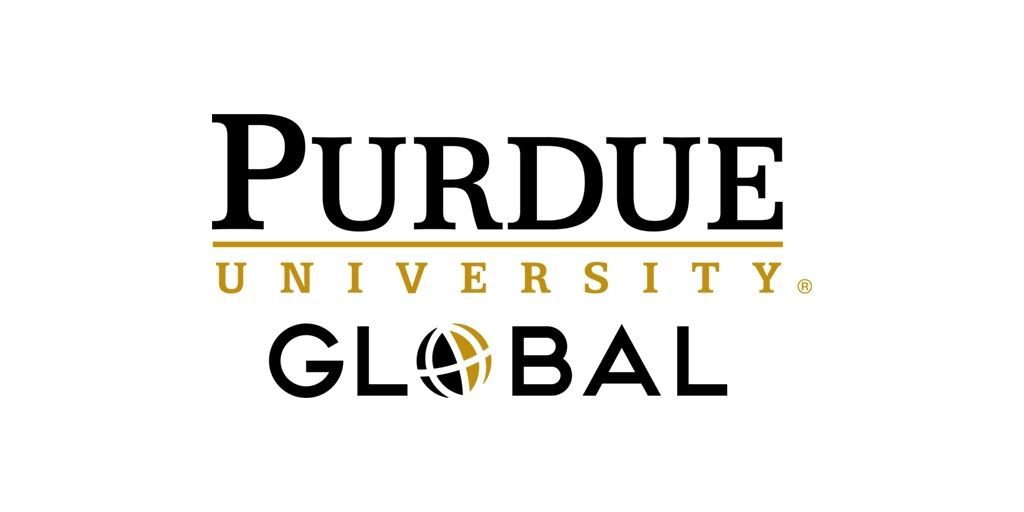
Quick Facts:
- Length: 180 quarter credits (which is equivalent to 120 semester credits)
- Time to complete: 4 years (if attending full-time)
- Format: Online
- Tuition: $371
- This is a customizable degree that allows you to choose targeted electives that prepare you for work in your field of choice.
Online Program Information:
- Number of Degree Options: 1
- Median Earnings Two Years After Graduation: $47,403.50
School-Wide Information:
- Admission Rate: 100% (this institution has an open admissions policy)
- Graduation Rate: 33%
- Median Debt Upon Graduation: $24,27.50
- Student Satisfaction: 4.2 out of 5 stars
- Type of Accreditation: Regional (2 out of 2 points)
OSR Score: 68.33
This online degree from Purdue University Global offers a multi-modal approach to education. Rather than focusing just on sports medicine-related topics, you’ll get a well-rounded education that includes:
- Studies of scientific literature
- Exploration of topics related to exercise science, nutrition, stress management, and health psychology
- Studies of alternative medicines
- A review of ethics and professional practice
You’ll also take courses that help you become a leader in health science that can help educate individual clients, groups, and even communities about what it means to lead a healthier lifestyle.
In addition to these undergraduate studies, you can opt to take part in an accelerated track for a master’s degree in health informatics, public health, health care administration, health education, or health information management. This allows you to complete both degrees faster and at a lower cost. Purdue is one of a few schools in this ranking with this option.
13. Online Bachelor of Health Science
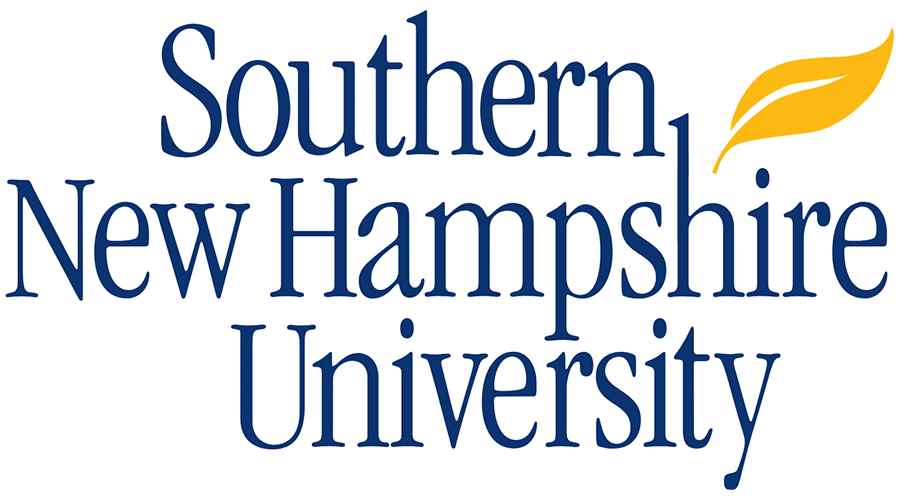
Quick Facts:
- Length: 120 credits
- Time to complete: 4 years (if attending full-time)
- Format: Online
- Tuition: $320
- Southern New Hampshire University allows you to transfer up to 90 credits into the program so you can finish your degree quickly.
Online Program Information:
- Number of Degree Options: 1
- Median Earnings Two Years After Graduation: $48,202.50
School-Wide Information:
- Admission Rate: 94%
- Graduation Rate: 47%
- Median Debt Upon Graduation: $18,250
- Student Satisfaction: 3.5 out of 5 stars
- Type of Accreditation: Regional (2 out of 2 points)
OSR Score: 63.33
This generalist online degree from Southern New Hampshire University is designed to provide you with a wide-ranging education in health science. In some cases, students in this program already have an associate’s degree in health science or a related field. In other cases, students have some work experience in a healthcare setting. Some students have both. Others are fresh out of high school.
No matter what your prior experience is, this program will introduce you to important topics in modern healthcare. This includes courses in:
- Healthcare finance
- Healthcare delivery
- Ethics and legal considerations in healthcare
- Healthcare quality management
- Healthcare economics
Additionally, you’ll learn about healthcare reimbursement and you’ll do a health sciences capstone project that allows you to dive deep into a specific topic in the health sciences space.
At $320 per credit, this is one of the least expensive programs on this list. Graduates of SNHU historically have a relatively low level of student loan debt as well.
14. Online Bachelor of Science in Kinesiology With a Concentration in Health Promotion and Wellness

Quick Facts:
- Length: 120 credits
- Time to complete: 4 years (if attending full-time)
- Format: Online
- Tuition: $380
- Courses are offered in traditional 16-week format as well as accelerated 8-week formats for students that wish to graduate sooner.
Online Program Information:
- Number of Degree Options: 1
- Median Earnings Two Years After Graduation: $44,229
School-Wide Information:
- Admission Rate: 67%
- Graduation Rate: 50%
- Median Debt Upon Graduation: $21,625
- Student Satisfaction: 3.7 out of 5 stars
- Type of Accreditation: Regional (2 out of 2 points)
OSR Score: 63.33
This online degree from the University of Louisiana at Lafayette is eight semesters long. This timeframe might be reduced if you maximize the number of accelerated courses you take.
Coursework in this program focuses on health and wellness topics, such as:
- Nutrition for fitness and sports
- World health issues
- Women’s health issues
- Occupational health and safety
- Stress and stress management
By completing this degree, you are eligible to pursue the Certified Health Education Specialist (CHES) credential from the National Commission for Health Education Credentialing. Certification is gained by achieving a satisfactory score on the national certification exam.
Students in this program have access to online tutoring, online library services, 24/7 technical support, and other support services to assist them in their studies. This also includes access to an academic success hub for online students at ULL.
15. Online Bachelor of Science in Health Sciences – Healthy Lifestyles and Fitness Science
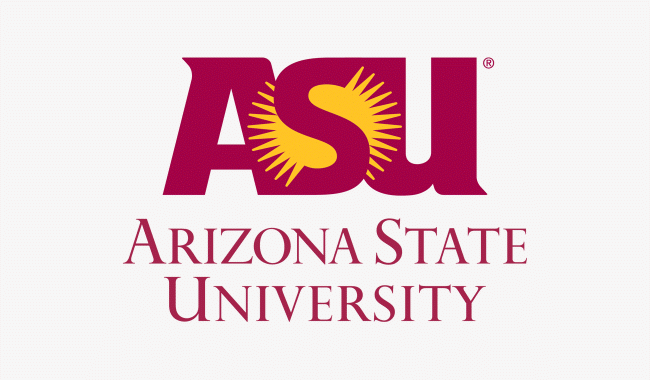
Quick Facts:
- Length: 120 credits
- Time to complete: 4 years (if attending full-time)
- Format: Online
- Tuition: $561-661 per credit
- This is just one of eight different online undergraduate degrees that could lead to a career in the field of sports medicine.
Online Program Information:
- Number of Degree Options: 8
- Median Earnings Two Years After Graduation: $50,766.50
School-Wide Information:
- Admission Rate: 73%
- Graduation Rate: 54%
- Median Debt Upon Graduation: $24,000
- Student Satisfaction: 3.9 out of 5 stars
- Type of Accreditation: Regional (2 out of 2 points)
OSR Score: 63.33
This four-year online program from Arizona State University offers coursework that will help you develop a deep understanding of important concepts in the sports medicine space. This includes fitness, nutrition, and mindfulness practices.
Additionally, you’ll explore the essential competencies required of most careers in the health and wellness field. You’ll learn how to build relationships with your clients and how to use positive psychology to help them overcome obstacles in their sports performance abilities.
Likewise, the coursework in this program will guide you in learning how to use questioning and active listening to help clients identify goals, roadblocks to those goals, and set out a plan for achieving positive progress.
Once you complete this program, you will be prepared to sit for a number of different national certifications. For example, this curriculum prepares you to take the American College of Sports Medicine’s certified personal trainer exam. Furthermore, once you graduate and finish at least one supervised coaching course, you will be eligible to pursue the National Board Certification for Health and Wellness Coaches.
16. Online Bachelor of Science in Health Science

Quick Facts:
- Length: 33 credits
- Time to complete: 1 year (if attending full-time)
- Format: Online
- Tuition: $452
- This is a degree completion program, meaning you have to complete general education requirements and prerequisites before beginning the program.
Online Program Information:
- Number of Degree Options: 1
- Median Earnings Two Years After Graduation: $44,236
School-Wide Information:
- Admission Rate: 87%
- Graduation Rate: 45%
- Median Debt Upon Graduation: $23,297
- Student Satisfaction: 3.9 out of 5 stars
- Type of Accreditation: Regional (2 out of 2 points)
OSR Score: 63.33
As a degree completion program, this online degree from Northern Kentucky University is by far the shortest on this list. With just 33 credits to complete (after completing around 87 credits of general courses and prerequisites), most students complete this program in around one year.
It’s important to note that completion of the general courses and prerequisites can be done at Northern Kentucky University or by transferring in some or all of the credits.
The courses you will take as part of this program include, but are not limited to:
- Healthcare Management
- Healthcare Research
- Issues in Chronic Disease Management
- Ethical and Legal Issues in Healthcare
Additionally, you will take a teaching and learning course in healthcare education, a course on aging in today’s society, and you’ll also take a course on global perspectives in healthcare, among others.
17. Online Bachelor of Science in Exercise Science
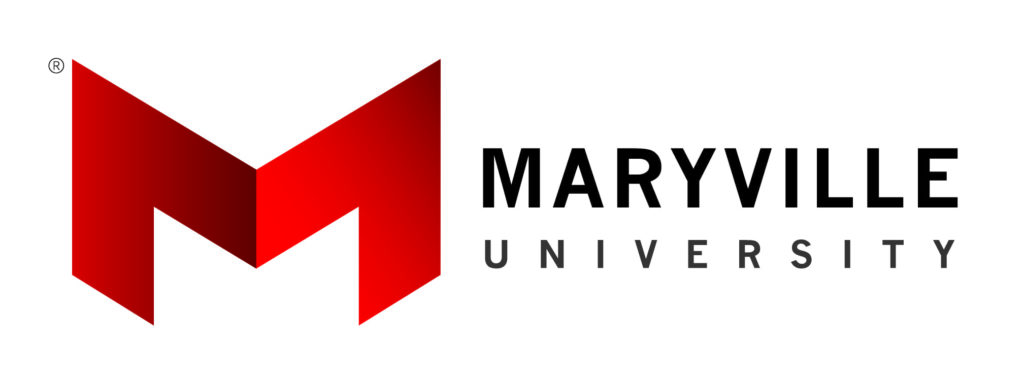
Quick Facts:
- Length: 120 credits
- Time to complete: 4 years (if attending full-time)
- Format: Online
- Tuition: $500
- This program is recognized by the National Strength and Conditioning Association Education Recognition Program.
Online Program Information:
- Number of Degree Options: 1
- Median Earnings Two Years After Graduation: $45,476
School-Wide Information:
- Admission Rate: 95%
- Graduation Rate: 59%
- Median Debt Upon Graduation: $20,500
- Student Satisfaction: 3.7 out of 5 stars
- Type of Accreditation: Regional (2 out of 2 points)
OSR Score: 63.33
This online degree in exercise science from Maryville University offers two different areas of concentration: wellness management and strength and conditioning. If sports medicine is your desired career, focusing on strength and conditioning is a good start. You also have the option of taking specialized electives, that way you can tailor your education to your particular area of interest.
This program is science-based and experiential, meaning there are ample opportunities for you to get practical training in project-based learning exercises. These exercises are developed with the help of health and wellness industry leaders.
As a student in this program you will have access to app-based and video-based programs that help you study topics related to training, fitness, movement, and performance. Additionally, you’ll have access to Maryville’s Human Performance Lab.
The program ends with a capstone experience during which you design and carry out an exercise-related project.
18. Online Bachelor of Science in Human Performance

Quick Facts:
- Length: 120 credits
- Time to complete: 4 years (if attending full-time)
- Format: Online
- Tuition: $371
- This unique program prepares graduates to either pursue licensure as a teacher or to work in the private sector in sports medicine, exercise science, and related areas.
Online Program Information:
- Number of Degree Options: 1
- Median Earnings Two Years After Graduation: $40,279
School-Wide Information:
- Admission Rate: 80%
- Graduation Rate: 63%
- Median Debt Upon Graduation: $25,831.50
- Student Satisfaction: 3.8 out of 5 stars
- Type of Accreditation: Regional (2 out of 2 points)
OSR Score: 60
What’s unique about this online degree from the University of Wisconsin-Whitewater is that it prepares you for two very different career tracks. On the one hand, you can use this program as a springboard for licensure to teach in a public school setting. On the other hand, the preparations you get in this program can help you enter the workforce in any number of private sector careers, such as:
- Fitness Training
- Sports Management
- Exercise Physiology
- Exercise Science
- Recreation Management
This program follows an asynchronous format, which gives you added flexibility for completing courses in the order that best suits your needs and interests. Likewise, there are opportunities for field studies that allow you to put your classroom learning to work in a real-world environment while still a student. This includes a capstone research project as well as a six-credit internship placement.
19. Online Bachelor of Science in Exercise Science

Quick Facts:
- Length: 124 credits
- Time to complete: 4 years (if attending full-time)
- Format: Online
- Tuition: $215 per credit (in-state); $539 (out-of-state)
- This is a science-based program that incorporates science education, research, and practical applications of exercise science principles.
Online Program Information:
- Number of Degree Options: 1
- Median Earnings Two Years After Graduation: $39,406.50
School-Wide Information:
- Admission Rate: 100% (this institution has an open admissions policy)
- Graduation Rate: 22%
- Median Debt Upon Graduation: $23,413.50
- Student Satisfaction: 3.3 out of 5 stars
- Type of Accreditation: Regional (2 out of 2 points)
OSR Score: 58.33
This online 124-credit program in exercise science is offered by Cameron University. Cameron is a small college in Lawton, Oklahoma, that boasts small class sizes. This is true even of its online classes.
As a student in this program, you will take a variety of courses in sports and exercise science. This includes, but is not limited to:
- Anatomy and kinesiology
- Sports nutrition
- Care and prevention of athletic injuries
- Facility management
- First aid
- Motor learning
- Biomechanics
You’ll note that some of the required courses focus on the administration aspects of sports and exercise science, like managing facilities. Likewise, you’ll learn about the legal aspects of working in this field. There is also a practicum requirement to graduate.
Cameron University graduates have a median income after graduation that’s at the bottom of our list. However, graduates from this school also enjoy low median debt.
20. Online Bachelor of Science in Exercise Science
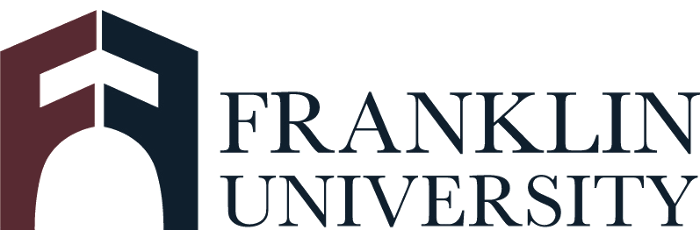
Quick Facts:
- Length: 120 credits
- Time to complete: 4 years (if attending full-time)
- Format: Online
- Tuition: $398
- This online degree program is aligned with American College of Sports Medicine guidelines.
Online Program Information:
- Number of Degree Options: 1
- Median Earnings Two Years After Graduation: $52,502.50
School-Wide Information:
- Admission Rate: 100% (this institution has an open admissions policy)
- Graduation Rate: 34%
- Median Debt Upon Graduation: $25,625
- Student Satisfaction: 2.9 out of 5 stars
- Type of Accreditation: Regional (2 out of 2 points)
OSR Score: 55
As noted above, this program from Franklin University is aligned with the guidelines from the American College of Sports Medicine (ACSM). As such the curriculum closely follows contemporary practices in the field of exercise science.
As part of the ACSM-aligned curriculum, you’ll take courses related to:
- Designing exercise programs
- Contemporary issues in sports studies
- Sports and exercise psychology
- Kinesiology and biomechanics
- Sport facility and event management
Additionally, there are classes in research methods, sports, law, and strength training, to name a few.
Graduates of this program enjoy robust earnings two years after graduation. In fact, with median earnings at $52,502.50, this program ranks toward the top of the list.
At the same time Franklin University has a very low graduation rate of just 34 percent – which is near the bottom of our list. It also has a low student satisfaction score of just 2.9 out of 5 stars, which is lowest among the programs in our rankings.
Frequently Asked Questions
What is the job outlook for sports medicine?
While the Bureau of Labor Statistics (BLS) doesn’t provide jobs data for sports medicine directly, we can use data from a closely related field – athletic training – to get a good idea of what the job outlook is for sports medicine.
The BLS predicts that the field of athletic training will grow by 23 percent through the end of the 2020s. This represents much faster growth than average.
There are a number of reasons why sports medicine and related fields are expected to experience significant growth, not the least of which is the continued popularity of sports programs for people of all ages.
Unfortunately, injuries occur at all levels of sport, so having qualified sports medicine workers is necessary to treat everything from sprains to broken bones to concussions. This is especially true of school sports (both secondary and collegiate) and professional sports, where demand for qualified sports medicine professionals is predicted to remain high.
Another reason the BLS cites as cause for growth in this field is the growing popularity of sports participation among older people. Older adults are more prone to injury, and are more likely to seek treatment as well, so older patients should drive the demand for professionals in this field ever upward.
Is a master’s in sports medicine required to work in this field?
While a master’s in sports medicine is not required for entry-level work in this field, it is all but required for advanced positions.
With a bachelor’s degree, you might work as an athletic trainer, a recreational therapist, an exercise physiologist, or perhaps even a nutritionist. But, other careers in this field require much more schooling such as a graduate degree.
For example, if you want to work as a sports medicine professional in collegiate athletics, you’ll likely need a master’s in sports medicine, if not a doctorate. The same goes for working in professional athletics.
Additionally, related occupations in this field require a doctorate. For example, physical therapists often work in the sports medicine field, and they are required to have a doctorate of physical therapy in order to practice. Likewise, sports medicine physicians must have a medical degree, which means attending medical school, completing residency, and so forth.
There are many good-paying entry-level careers in this field that can be had with a bachelor’s degree. But the old rule of thumb about education and experience applies here – the more you have of both, the better the jobs you can get. An online master’s in sports medicine might be on your radar during your school search.
Where do sports medicine professionals work?
Sports medicine professionals work in many varying locations and with a wide range of clients.
For example, some sports medicine professionals work only with children and help them recover from injuries sustained in school sports programs. Other professionals in this field work only with professional athletes and are employed by professional athletic teams.
Another workplace for sports medicine professionals is in a private practice or clinical setting. For example, an athletic trainer might work in a physical therapy clinic and consult with physical therapists, occupational therapists, rehabilitation therapists, and other professionals on developing a course of treatment for a patient.
You might also find sports medicine professionals working in doctor’s offices, medical clinics, or hospitals. This is particularly true of medical offices that primarily deal with sports-related injuries. So, a bone and joint clinic that contracts with a local university to perform procedures on athletes might have a sports medicine professional on staff.
Are certifications or licensures required to be a sports medicine professional?
Some careers in this field are regulated via certification and licensure processes. Certifications are controlled by educational institutions and professional organizations while licensure requirements are established by individual states.
For example, if you want to be an athletic trainer, you must be licensed (unless you practice in California). Furthermore, in 48 states, athletic trainers must hold an Athletic Trainer Certified (ATC) credential in order to practice.
But, these requirements are for this specific position. You’ll need to investigate what the exact certification and licensure requirements are for the position in which you are interested.
Related:






